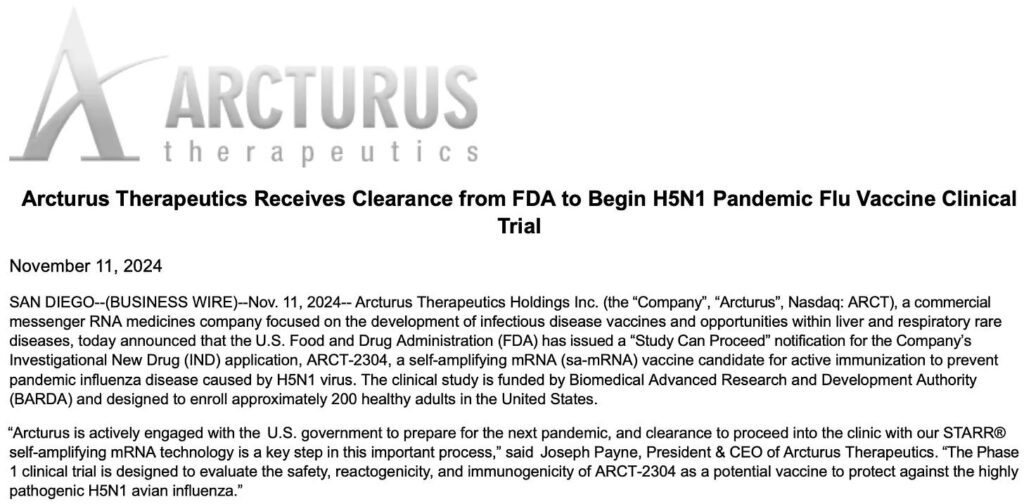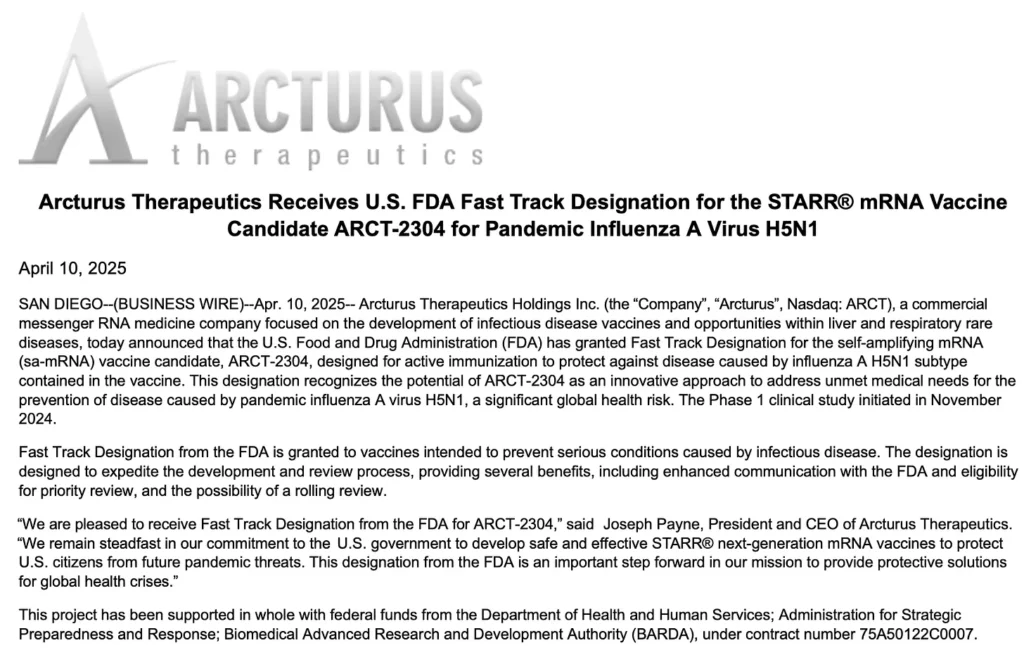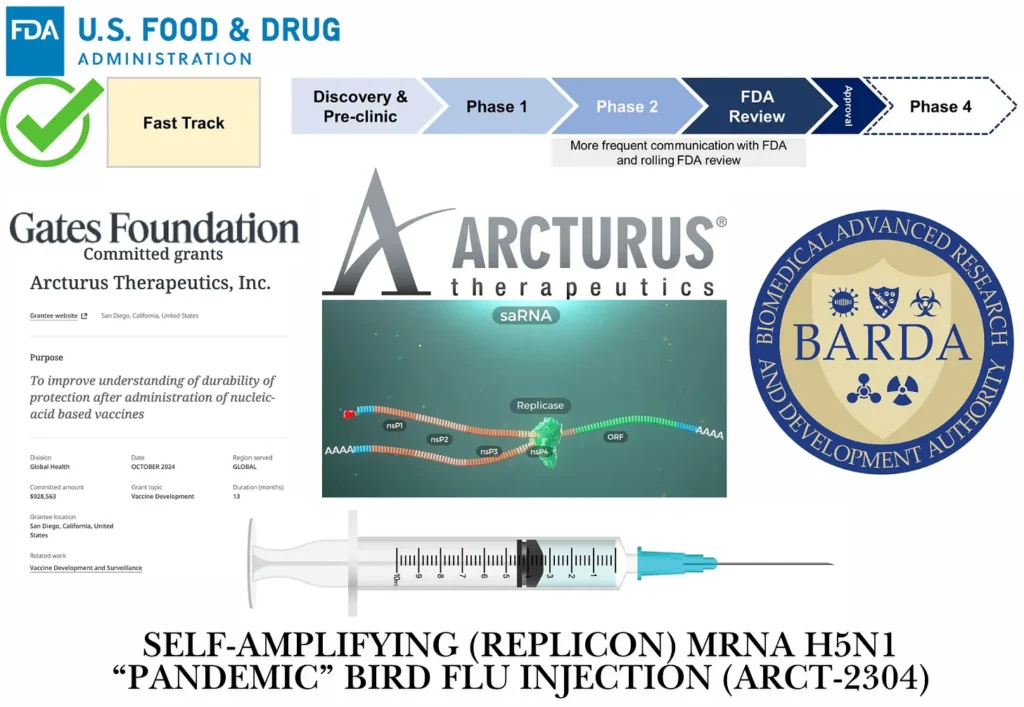
The FDA recently fast tracked a potential bird flu vaccine for humans.
The FDA granted fast track designation for a self-amplifying mRNA vaccine candidate (ARCT-2304) for active immunization to protect against influenza A H5N1 subtype, better known as the bird flu.
The designation addresses the unmet need for prevention of H5N1, which remains, allegedly, a global health risk. A phase 1 trial (NCT06602531) of the vaccine was initiated in November 2024.

BYPASS THE CENSORS
Sign up to get unfiltered news delivered straight to your inbox.
You can unsubscribe any time. By subscribing you agree to our Terms of Use

In an article for Focal Points, Nicolas Hulscher, MPH writes:
Leaked Spielberg Tape Shows Michelle Obama ‘Auditioning’ Child Stars For VIP Pedo Film
Yesterday, Arcturus Therapeutics received U.S. FDA Fast Track Designation for the replicon injection ARCT-2304:These experimental replicon shots are primarily funded by BARDA with support from the Gates Foundation.

According to the FDA:
Fast track is a process designed to facilitate the development, and expedite the review of drugs to treat serious conditions and fill an unmet medical need. The purpose is to get important new drugs to the patient earlier.
A drug that receives Fast Track designation is eligible for some or all of the following:
- More frequent meetings with FDA to discuss the drug’s development plan and ensure collection of appropriate data needed to support drug approval
- More frequent written communication from FDA about such things as the design of the proposed clinical trials and use of biomarkers
- Eligibility for Accelerated Approval and Priority Review, if relevant criteria are met
- Rolling Review, which means that a drug company can submit completed sections of its Biologic License Application (BLA) or New Drug Application (NDA) for review by FDA, rather than waiting until every section of the NDA is completed before the entire application can be reviewed.

It’s important to understand that these products behave like a synthetic virus. The replicon mRNA is designed to encode not only the target antigen but also viral replicase, enabling the mRNA to replicate itself within the target cells. This replication machinery allows for an unknown period of toxic antigen production and an increased probability of shedding
